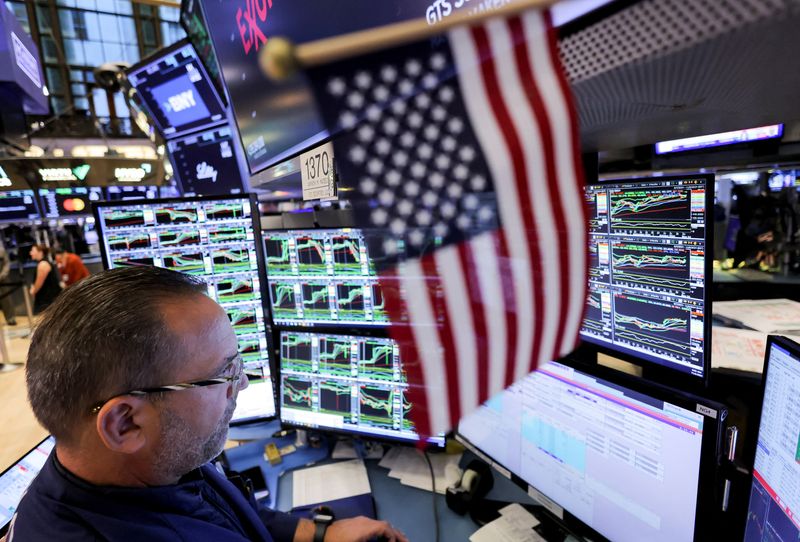US defense shares, government contractors fall after Trump efficiency picks

NEW YORK (Reuters) – Shares of defense companies and government contractors were lower on Friday, extending recent losses amid uncertainty surrounding President-elect Donald Trump’s proposed Department of Government Efficiency.
Trump, a Republican who won last week’s election against Democratic Vice President Kamala Harris, this week named Elon Musk and former Republican presidential candidate Vivek Ramaswamy to co-lead the proposed efficiency department, an entity Trump indicated will operate outside the confines of government.
Among defense contractors, shares of General Dynamics (NYSE:GD) fell 1.5% on Friday, while Lockheed Martin (NYSE:LMT) was off 0.8% and Northrop Grumman (NYSE:NOC) was down 1.3%.
The S&P 500 Aerospace & Defense index was down 0.6%.
Shares of government contractors also continued their recent slide on Friday, including Leidos Holdings (NYSE:LDOS), which was down 4.4%; Science Applications (NASDAQ:SAIC) International, which was down 2.8%; and Booz Allen (NYSE:BAH) Hamilton, which fell 3%.
General Dynamics was down about 7% for the week, while Leidos fell 19%. Both stocks suffered their biggest weekly percentage drops in more than four years.
JP Morgan analysts wrote in a research note Thursday that the trigger for the decline in the government contractors’ shares signals concern about the efficiency department “and how it may result in budget cuts and policy changes that reduce contractor earnings.”
The Musk and Ramaswamy picks were among some others this week by Trump, including Robert F. Kennedy Jr. to lead the Department of Health and Human Services and Pete Hegseth to be secretary of defense.
“It’s creating a lot of disruption and uncertainty with respect to industries that are subject to government regulation,” said Rick Meckler, partner at Cherry Lane Investments, a family investment office in New Vernon, New Jersey.
“It’s unclear how many of these selections will ultimately be approved … but corporate America and investors in corporate America like a more certain path where they can value companies based on expected earnings and growth, and there are some radical selections here that could potentially lead to dramatic changes.”






